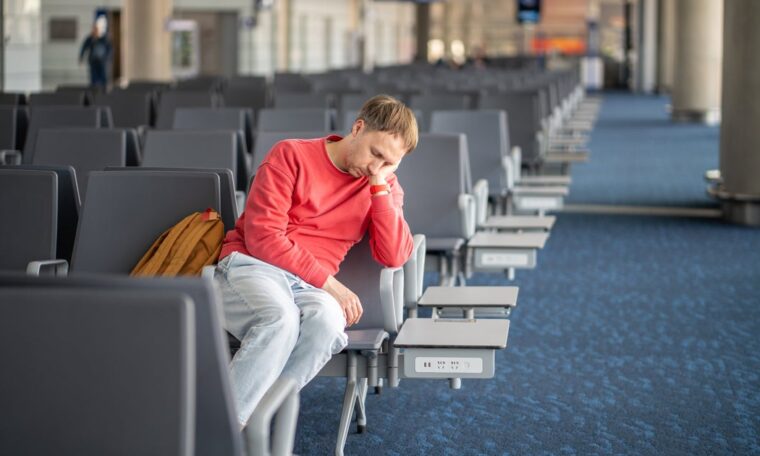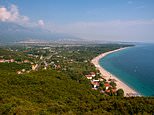
Just after the clock struck midnight on Sept. 30, the United States government shut down. Despite controlling the Senate, House and White House, Republicans failed to pass legislation that would continue funding for government operations.
Many Americans are likely to feel the pinch. Hundreds of thousands of federal employees were furloughed. Essential federal employees will be required to continue working without pay, even though their rent and grocery bills still need to be paid. Funding for vital programs, including the Supplemental Nutrition Assistance Program (SNAP), Head Start and some National Institutes of Health studies, is expected to dry up quickly.
Disrupted travel plans as a result of the shutdown may seem minor compared to these weightier issues. Nevertheless, it’s important to understand what the shutdown means for everything from national park closures to passport processing times.
Here are the answers to some common questions about how the shutdown could impact your travel plans.
Dmitrii Marchenko via Getty Images
Although flight cancellations are unlikely early in the shutdown, canceled flights become more likely the longer the shutdown drags on, she explained.
Will my flight be canceled?
During government shutdowns, essential employees, such as Transportation Security Administration (TSA) agents and air traffic controllers, are still required to work without pay. That means that most flights will continue to take off and land as scheduled. Nevertheless, air passengers should expect disruptions.
As low morale and financial strain take their toll, TSA agents and air traffic controllers may stop showing up for work. “During the 2018-2019 shutdown, TSA screener absentee rates hit 10%, three times the average, which led to longer security lines and some security checkpoint closures at airports, including Atlanta, Houston and Miami,” said Sarah Silbert, the managing editor at Points Path. That makes long TSA lines and flight delays likely.
Although flight cancellations are unlikely early in the shutdown, canceled flights become more likely the longer the shutdown drags on, she explained.
Will national parks stay open?
Most national park trails, lookouts, park roads and open-air monuments will remain open during the shutdown.
However, under the current shutdown, more than half of the National Park Service (NPS) employees will be furloughed. Additionally, many services will be halted or significantly reduced. For example, visitor centers will be closed and gated parking lots will be locked according to a National Park Service Contingency Plan. Additionally, emergency services will be minimal, and search-and-rescue operations may be delayed.
When it comes to services like bathroom access and trash collection, the contingency plan distinguishes between NPS sites that charge fees and those that don’t.
The majority of NPS sites do not charge fees. At those parks and monuments, bathrooms will remain locked for the duration of the shutdown, and trash will not be collected. At the NPS sites that collect fees, those funds can be used to maintain restrooms, collect trash, operate campgrounds, and staff gates to provide critical safety information.
However, it’s essential to monitor the situation closely. The contingency plan states that parks can close at any time for several reasons, including to protect sensitive wildlife, if there is a threat to visitor safety, and if garbage buildup poses a health hazard. Moreover, a group of 40 former park superintendents have urged the Trump administration to close national parks during this shutdown. Past shutdowns have resulted in vandalism of iconic symbols, destruction of wildlife habitats and jeopardized visitor safety, making it too risky to keep national parks open, they said in a letter to Interior Secretary Doug Burgum.
Will my travel insurance cover shutdown-related travel disruptions?
Travel insurance plans vary widely, so it’s important to review the fine print in your plan. However, most shutdown-related travel disruptions aren’t covered by travel insurance.
If you cancel your trip because the attractions you wanted to visit are closed, you are worried about flight cancellations, or you just feel uneasy traveling, you are probably out of luck, said Suzanne Morrow, CEO at Insure My Trip. Canceling a trip because your passport didn’t make it in time for an international trip also isn’t covered under most plans, she explained.
Travelers who purchased “cancel for any reason” travel insurance should be able to recoup some of their costs no matter why they cancel a trip, Marrow said. However, because most people don’t buy this type of comprehensive insurance, most travelers who want to cancel their trip due to the shutdown should expect to eat the cost.
Nevertheless, most travel insurance plans cover unforeseen events that cause delays, cancellations or missed connections for flights. If a government shutdown results in your flight being significantly delayed or canceled, you may be able to recoup any lost money for nonrefundable expenses like flights, hotels, prepaid tours and change fees, said Jeff Rolander, VP of Claims, Faye Travel Insurance.
Will my passport application be processed?
During a government shutdown, passport applications will continue to be processed. That’s because passport operations are primarily funded by fees paid by applicants, not government appropriations.
However, as with other aspects of the federal government, it’s not business as usual. Some passport processing offices are located in federal buildings that will be closed during the government shutdown. Those passport offices will remain open, but their hours may be limited. As a result, it may take longer than usual to get your passport, Morrow explained. Although unlikely, if the shutdown drags on long enough, the passport agency may run out of funds and be forced to close.
Will I be able to use consular services abroad?
During the government shutdown, consular services abroad will continue to operate. U.S. citizens traveling internationally who need assistance should be able to contact the closest U.S. embassy or consulate for help. However, as with other government operations, services are likely to be reduced or delayed.
How can I prepare for disruptions?
Despite the government shutdown, most travelers should be able to travel relatively worry-free. “Travel’s still on, but expect longer lines, possible cancellations, and fewer services,” said Leigh Barnes, president of the Americas for Intrepid Travel. Nevertheless, it’s important to be alert and plan ahead. “Have a backup plan ready. State parks, privately run attractions or alternative itineraries can keep your trip on track,” Barnes advised.
Source link
CHECK OUT: Top Travel Destinations
READ MORE: Travel News



